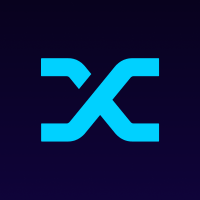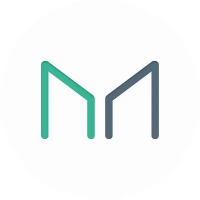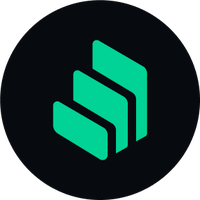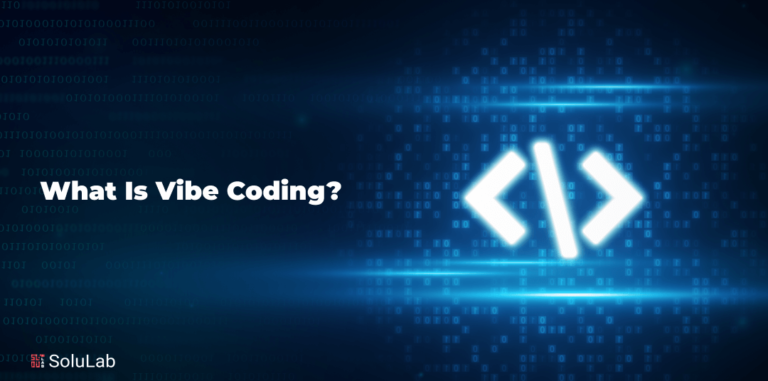Consider that your money isn’t confined to traditional banks but flows freely through decentralized protocols, eliminating the need for intermediaries. As we step into the year 2025, the Decentralized Finance (DeFi) space has witnessed an astonishing surge in innovation, with a myriad of protocols competing for supremacy.
If you’ve been following the crypto space, you’ve likely encountered discussions about DeFi’s potential to change how we handle money. With a plethora of protocols, it can be challenging to discern which ones are leading the charge.
In this article, we’ll explore the top DeFi protocols that are making significant impacts in 2025. We’ll explore what these protocols are, how they function, and why they matter.
What are DeFi Protocols and How Do They Even Work?
A DeFi protocol is a collection of guidelines, code, and practices that control blockchain-based financial applications, mainly those used for cryptocurrency lending, borrowing, and trading. These protocols, such as Uniswap and Aave, use smart contracts on platforms like Ethereum to provide financial services without the need for conventional middlemen.
Unlike traditional financial systems, DeFi protocols are open source. This makes these services available to anybody with an internet connection, boosting financial transparency and inclusivity.
1. Smart Contracts: Decentralized finance protocols utilize smart contracts, self-executing pieces of code, to define the rules and conditions of various financial transactions and agreements. These smart contracts automate processes and ensure transparency and security without requiring a central authority.
2. Decentralized Governance: Many DeFi protocols have decentralized governance mechanisms, allowing token holders to participate in decision-making processes, such as proposing and voting on protocol upgrades or changes.
3. Liquidity Pools: In DeFi protocols like Uniswap and Curve Finance, liquidity is provided by users who deposit their assets into liquidity pools, which enable the trading of assets without the need for centralized order books.
4. Yield Farming: Some DeFi protocols offer incentives in the form of governance tokens or other rewards to users who provide liquidity or use their platform. This process, known as yield farming, encourages participation and liquidity provision within the ecosystem.
5. Interoperability: Decentralized finance protocols often work together through composability, meaning they can interact with each other’s smart contracts, creating complex financial systems with a wide range of functionalities.
Here are the Top DeFi Protocols in 2025

1. Uniswap
Uniswap continues to maintain its position as one of the best DeFi protocols within the cryptocurrency space, fundamentally reshaping the landscape of trading. Pioneering the use of automated market maker (AMM) technology, Uniswap facilitates direct asset exchanges from users' wallets via liquidity pools. Its appeal lies in its abundant liquidity, transparent operations, and low transaction costs, drawing in a vast user base.
Looking ahead to 2025, Uniswap aims to further enrich its platform with enhanced user experiences, while also addressing scalability challenges to accommodate the surging demand. Additionally, it endeavors to broaden its array of services and features to meet the evolving needs of the decentralized finance ecosystem.

2. Aave
Aave has solidified its position as the leading decentralized lending and borrowing protocol. By allowing users to lend their assets and earn interest or borrow assets by providing collateral, Aave has democratized access to credit and interest-earning opportunities. Its innovative "flash loans" have enabled instant, uncollateralized borrowing and sparked a new wave of DeFi applications. In 2025, Aave is expected to expand its offerings with support for new assets, introduce new features for risk management, and strengthen its security protocols to protect user funds.

3. Synthetix
Synthetix stands at the forefront of the DeFi revolution, enabling the creation and trading of synthetic assets that represent real-world assets like stocks, commodities, and fiat currencies. These synthetic assets, or "synths," allow users to gain exposure to various markets without holding the actual underlying assets. As demand for diversified investment opportunities rises, Synthetix is anticipated to roll out new assets, improve oracle mechanisms, and enhance its governance to meet the evolving needs of the DeFi community.

4. MakerDAO
MakerDAO, the creator of the first decentralized stablecoin DAI, has significantly contributed to the stability and liquidity of the DeFi ecosystem. It is one of the biggest players in this industry. DAI pegged to the US Dollar, has become a staple in DeFi and is utilized as collateral for various lending and borrowing activities. As the demand for stablecoins continues to soar, MakerDAO is likely to explore new collateral options, optimize its governance model, and expand its partnerships with other DeFi protocols to enhance its utility and reach.

5. Yearn Finance
Yearn Finance has redefined yield farming by automating the process of yield optimization. With its intuitive platform, users can deposit their assets, which are then moved across various DeFi protocols to maximize returns. As yield farming becomes more accessible and user-friendly, Yearn Finance is expected to unveil new strategies, offer integration with additional DeFi protocols, and implement governance improvements to enhance its value proposition.

6. Curve Finance
Curve Finance is a specialized decentralized exchange tailored for stablecoin trading. Its algorithm ensures low slippage and high liquidity for stablecoin pairs, attracting traders looking for stable asset swaps. As the demand for stablecoin trading rises, Curve Finance is anticipated to increase its liquidity provision strategies, launch new stablecoin pairs, and optimize its user experience to maintain its leading position.

7. SushiSwap
SushiSwap, an automated market maker (AMM) DEX, has gained significant traction due to its community-driven approach and innovative product offerings. As an evolution of the original Uniswap protocol, SushiSwap has introduced additional features, such as revenue-sharing for liquidity providers and unique tokenomics. In 2025, SushiSwap is poised to introduce new features, strengthen its governance, and enhance its liquidity incentives to remain a key player in the competitive DEX landscape.

8. Compound
Compound has emerged as a prominent decentralized lending and borrowing platform, allowing users to lend or borrow a variety of cryptocurrencies. Its straightforward and efficient user experience has attracted a massive user base. In 2025, Compound is likely to expand its asset offerings, refine its interest rate models, and introduce new governance features to maintain its position as a leading DeFi lending protocol.

9. PancakeSwap
Operating on the Binance Smart Chain, PancakeSwap has brought DeFi to a broader audience with its lower fees and faster transactions. Its familiar interface and diverse trading pairs make it a favorite among traders seeking a seamless experience outside the Ethereum network. PancakeSwap introduces its unique token called CAKE. Unlike being solely a governance token, CAKE serves as a liquidity provision token, effectively motivating liquidity providers to engage with the PancakeSwap platform. To begin using PancakeSwap, all you require is to link your non-custodial wallet containing the tokens you wish to trade.

10. Balancer
Balancer's innovative platform allows users to create personalized liquidity pools and introduces a unique concept of "smart" pools. These smart pools automatically rebalance their asset allocations to maintain desired weightings, optimizing returns and minimizing the need for constant manual adjustments. This dynamic feature provides a hands-off approach for liquidity providers while ensuring efficient trading opportunities for users.
As one of the top DeFi protocols, Balancer aims to continue its trajectory of innovation and advancement. With its focus on user-centric solutions and automated features, Balancer strives to solidify its position as a cornerstone of the decentralized finance ecosystem. By further refining its platform functionalities and expanding its range of services, Balancer seeks to meet the diverse needs of its growing community of users.

Conclusion
DeFi protocols represent a substantial change in the way financial services are provided and used, not only a substitute for conventional financial systems. These protocols improve accessibility, security, and transparency by utilizing blockchain technology.
The professionals will contribute their knowledge about how to overcome the obstacles. From developing smart contracts to integrating with well-known DeFi systems, they oversee a variety of duties. This ensures that your project will be secure and effective.
SoluLab recently helped DLCC build a solution, with two key platforms, Prime Product and Tokenet. It offers crypto trading, lending, and borrowing at negotiable fees. Eventually, it enhances user experience, strengthens security, and enables faster transactions.
SoluLab, a DeFi development company has its team of experts to help you discuss DeFi protocol-related queries. Contact us today to discuss further!
FAQs
1. Which DeFi protocols are leading in 2025?
Some of the top DeFi protocols in 2025 include Aave, Lido, EigenLayer, Uniswap, and Sky (formerly MakerDAO), based on metrics like Total Value Locked (TVL) and user adoption.
2. What role does AI play in DeFi protocols?
Artificial Intelligence is being integrated into DeFi protocols to enhance automation in trading, risk management, and yield optimization. AI-driven tools help users navigate complex DeFi platforms more efficiently.
3. How can users participate in DeFi protocols?
Users can engage with DeFi protocols by connecting their cryptocurrency wallets to platforms like Aave, Uniswap, or Lido. It’s essential to understand the risks involved, such as smart contract vulnerabilities and market volatility, before participating.
4. How does SoluLab contribute to the DeFi ecosystem?
SoluLab, as a leading DeFi development company, offers tailored solutions and expertise to empower projects within the DeFi ecosystem. From smart contract development and auditing to decentralized application (dApp) development and protocol optimization, SoluLab provides comprehensive support to DeFi initiatives, helping them achieve scalability, security, and user adoption.
5. What factors should investors consider before participating in DeFi protocols?
Investors interested in DeFi protocols should conduct thorough research and consider various factors before participating. These include understanding the protocol’s technology, assessing its security measures and audits, evaluating the team’s expertise and track record, analyzing the tokenomics and governance structure, and staying informed about regulatory developments and risks associated with the DeFi space.




